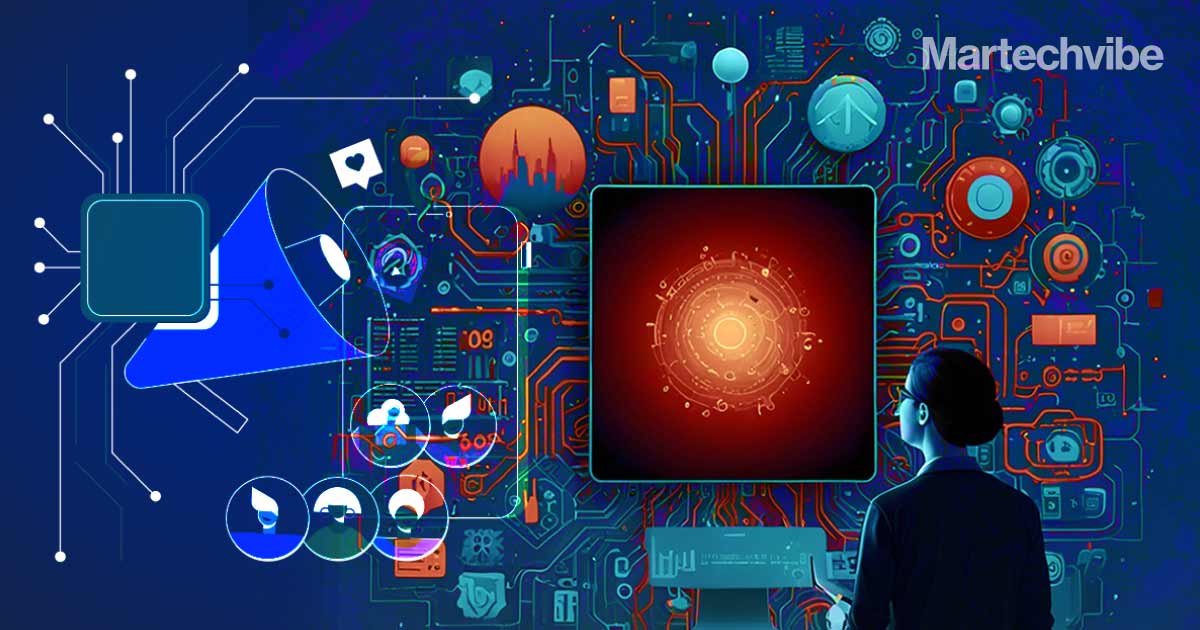Fewer Clicks: How AI will Transform Marketing & Advertising in 2025
Marketers will need to shift focus from search engine optimisation to a generative engine optimisation model, demonstrating how fast you can provide answers without expecting consumers to search through mountains of content.
Topics

In 2025, AI will become even smarter, more efficient, and more integrated into digital products and experiences. That means new opportunities for organisations to capture customers with more personalised, targeted marketing and advertising. From how potential customers find information, to how marketers and advertisers build, analyse, and use customer insights, AI will change the way we market to consumers.
In the year ahead, here are five new things for marketers to expect when it comes to how AI will impact their function:
1. 2025 will be a year of validation for digital marketers.
Marketers will need to hone their discipline in both measurement and experimentation while using new AI tools like Google’s Search Bidding Exploration, privacy-based data collection, and AI-driven targeting. Brands will be excited about these new AI offerings and will be willing to spend significant budget on them – but digital marketers will need to prove that these efforts and investment into new technologies is worth it. Brands will need to be able to take measurement and experimentation to another level with greater ease, and there will be more investments made as a whole in this area, as a result.
2. More brands will opt for privacy-conscious data collections.
As Google intends to make third-party cookie placement a consent-driven tactic, the trend of Application Programming Interface (API)-based data collection that is conditional upon opt-in will thrive. We’ll see further momentum away from cookie-based data collection approaches and a stronger push towards using Cloud-based platforms to stream the same data to marketing vendors for attribution purposes.
API-based data collection solves the challenges caused by an absence of cookies, all while doubling its benefit by feeding new data into vendor platforms that, in turn, improve their AI effectiveness. For these reasons, most brands that have adopted event streaming API offerings will comply with privacy regulations and ensure their data collection is privacy conscious and governed well in 2025. This will result in higher investment costs for these brands, but also a better return on investment.
3.Product marketers will showcase the role of AI much more quietly.
AI products and AI-powered features will continue to be built in 2025, but product marketers will begin to downplay AI’s presence. The goal will now be to seamlessly assist customers without them even realising they’re being assisted by AI. For that reason, marketers will move toward more customer-centric product descriptions that emphasise user benefits, rather than descriptions that overindex on how AI is integrated into the product.
4. 2025 will mark the rise of the answer economy.
Traditional search engines will no longer be the default way people get information or the answers to their questions. As consumers get used to the instant gratification of asking AI anything and getting an immediate response, using a search engine to look something up, scrolling through potential results, and clicking on pages of information to learn more will be a thing of the past.
Already, 60% of Google searches in the US and EU result in zero clicks, as many people don’t want to click endlessly to find what they’re looking for. For marketers, this will mean shifting focus from search engine optimisation to a generative engine optimisation model, demonstrating how fast you can provide answers without expecting consumers to search through mountains of content.
5. We’ll see a lot more AI-driven ad targeting.
Direct service providers (DSPs) will find that their investments in AI-based lookalike modeling and channel optimisation will bear even more fruit. Brands that lack the volume of first party data will turn to DSP-provided audience data that has been nurtured through a strong data lineage that the DSP has collected. This will drive a greater return on ad spend, as the accuracy of these particular audiences increases in parallel as they are continuously used in the campaigns that brands run on the DSP.
2025 will be a pivotal year for AI to reshape how consumers find information, and in turn how marketers connect with them. As AI-driven tools replace traditional search engines, consumers will expect more instant, accurate answers. At the same time, AI will make it easier for marketers to use real customer feedback to create more relevant content to engage their target audiences.
Advertising will also get smarter, with better targeting and privacy-focused data collection becoming the norm. This year, it’s up to digital marketers to show the value of these new tools through enhanced measurement and testing. Those who can adapt will lead their categories as they create more personalised and effective experiences for their audiences.









































































































